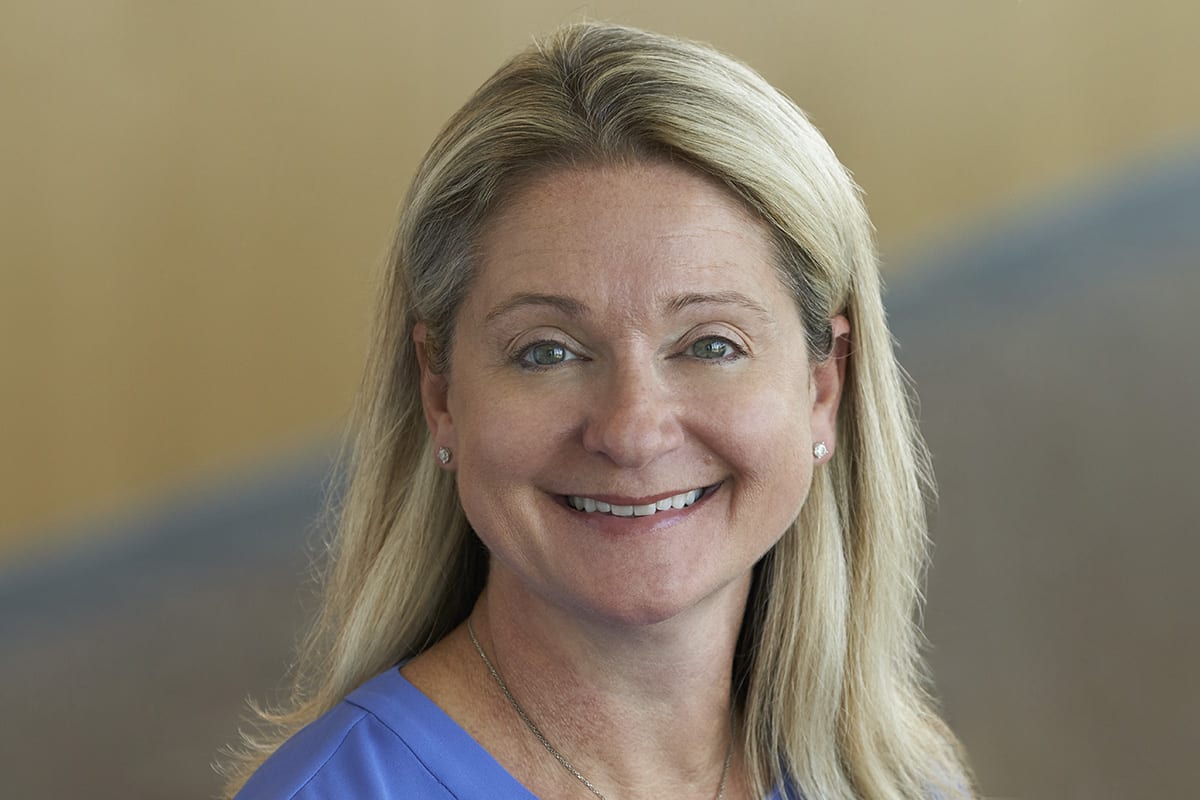Michelle Jenkins-Unterberg, PT, DHS, ’89, who was appointed dean for Maryville University’s Myrtle E. and Earl E. Walker College of Health Professions on June 1, 2019, is a fiercely loyal St. Louisan.
For anyone who has ever checked out her Facebook page, she wants to dispel one notion right away: just because her profile picture shows her in front of Wrigley Field, she is not a Cubs fan. She was there for a concert and continues to be a staunch supporter of both the Cardinals and the Blues.
That St. Louis loyalty is fitting for someone who is not only a member of Maryville’s leadership but is also a graduate of the school as well. Since earning her physical therapy degree in 1989, Jenkins-Unterberg has served as director of the physical therapy program, professor of physical therapy and as assistant dean of the Walker College of Health Professions.
In a recent conversation, she discussed how health care and Maryville continue to evolve, the importance of diversity and appreciation of other cultures and her open-door policy for students.
You first came to Maryville in 1985. How has the school has changed since then?
My history with Maryville is unique. When I came, it was still Maryville College. I graduated in 1989 with my bachelor’s of science in physical therapy, and it was much smaller. What has excited me is the growth in the number of different health profession programs and the reach that we have extended.
With the growth of our programs, we’re continuing to look at what the needs are in health care. We always had a strong background in nursing, physical therapy and occupational therapy, but we’re continuing to add programs. We have recently added an exercise science degree and a degree in health care management. Those are needs out in the community.
What will be your primary focus as dean?
My focus is to ensure that we provide an Active Learning Ecosystem for students. We are moving away from the lecture style of teaching to a more engaging learning environment, where students are right there with us and participating in the learning. That is taking place in so many different ways on campus.
For a week at the beginning of the semester, and for a week at the end of the year, faculty have professional development that is a model of engaging the faculty and promoting active learning. That is something we really embrace here at Maryville.
How has technology affected learning in the health professions?
We use technology not only in how we teach but in how we diagnose and treat patients. That is ever changing. We have to prepare students to be lifelong learners. Medicine continues to change, and the technology continues to change, so we have to be training students to be excellent practitioners and to be ready to go out there and continue to grow in a changing profession.
You have written about cultural awareness and sensitivity in physical therapy. How does that affect the profession?
When you go in to see a patient, you have to look at the whole person. You’re not just looking at a shoulder injury. You have to look at beliefs and customs and practices and take them into account.
It’s obviously very important, as we treat patients from a variety of cultures, that we are able to identify areas where we need to grow and become culturally competent, to be open to learning about different cultures. It can’t be just what I want. I have to take into account what they want. Five patients may have the same medical problem, but my approach may be different in each case. That is essential to be effective in physical therapy.
How does being a Maryville graduate figure into your new job?
My leadership style is collaborative. You will find me out of the office more than you’ll find me in my office. It’s an intentional effort to be present where the students are. Whether I’m out watching a soccer game or at a variety of different activities, I’m here as an advocate for the students. If students have a question, I have my door open for any students who want to talk with me.
As dean, how will you judge success?
I think it’s very important to have a measurable level of success. Student outcomes are important to ensure we are preparing excellent health care providers who are meeting future health care needs. Success will be meeting the needs of the community, being flexible, growth and overall University success.
